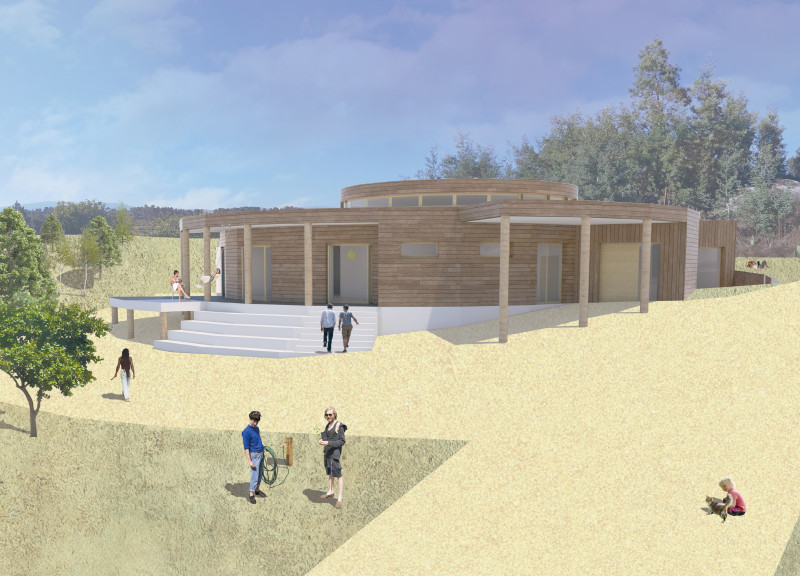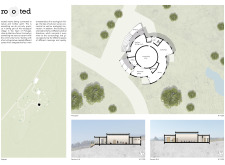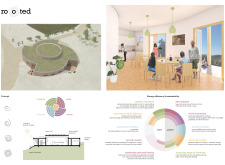5 key facts about this project
The design is located in an ecological village in central Portugal, near Idanha-a-Nova. It focuses on creating a community space that encourages connection with nature while providing necessary facilities for residents. The concept revolves around a spiral shape that organizes different functional areas to reflect the values of culture, social interaction, economy, and ecology.
Design Layout
The layout features distinct spaces including a community room, a kitchen and dining area, an office, a library, a terrace, storage areas, a workshop, and an entrance/gallery. Each space is thoughtfully arranged to promote interaction among residents and foster a sense of belonging. The building's orientation takes advantage of the four cardinal directions, enhancing its relationship with the landscape and offering varied experiences within the different areas.
Sustainability Features
Sustainability is a key focus of the design. Photovoltaic panels are included to provide a source of renewable energy, reducing reliance on non-renewable resources. Natural light is maximized through the use of bright wall colors and reflective ceiling surfaces, minimizing the need for artificial lighting during the day.
Thermal Performance
Thermal considerations are important, with thick walls designed to retain heat and maintain a comfortable indoor climate. The project also incorporates natural ventilation by allowing airflow through well-placed openings, reducing the need for mechanical systems. A geothermal heating system is recommended, connecting heating through walls and floors to enhance energy efficiency.
Incorporation of Materials
The choice of materials reflects a commitment to sustainability. Photovoltaics serve as an optional feature to capture solar energy. LED lighting is integrated throughout the design to improve energy efficiency and reduce consumption. These material selections align with contemporary approaches to sustainable living.
The terrace serves as an outdoor area that connects with the landscape, inviting gatherings and interactions among residents. It provides a space where community members can come together and enjoy the natural surroundings.






















































